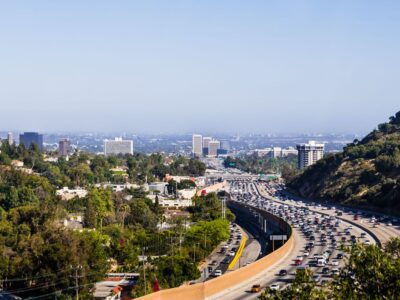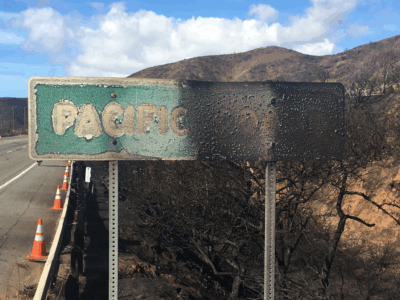Decriminalizing Our Public Lands
According to media reports, government fire investigations reveal that the recent, extensive brush fires that have destroyed nearly 100,000 acres in Santa Barbara County, California, were ignited as a result of illegal marijuana operations being conducted on federal forest lands.
As news accounts point out, clandestine drug operations carried out on public lands may be a new phenomenon for besieged firefighters. But they’re a depressing, all-too-familiar story to forest rangers, fish and game wardens, park rangers and narcotics agents.
Over the past three decades, there’s been a steady increase in the privatization of our public lands–especially in remote and wilderness areas. If that privatization had been at the hands of logging companies or mining conglomerates, we could expect a major outcry from the environmental community, recreationists and the media.
But this particular privatization movement is far more insidious, and blatantly illegal: it involves drug lords from both the U.S. and Latin American countries who see America’s wilderness areas as cheap (i.e., free), remote, and relatively secure sites on which to construct pot farms, methamphetamine labs and other illicit drug operations. For the most part, these drug kingpins oversee their operations remotely, never setting foot on-site but, rather, employing itinerant laborers to do the dirty work and assume the risk of discovery, capture and arrest by law enforcement officials.
And dirty work it is: any experienced government park ranger, warden or forestry official can attest to the profound environmental damage these illegal drug operations wreak on the public lands: clear-cut forests; unpermitted water diversions, erosion and runoff; soils contaminated with hazardous and human wastes; and, as demonstrated in the recent case of Santa Barbara, forest fires. And many of these drug farms and labs are guarded by criminals with firearms, explosives and very bad attitudes; it’s not uncommon for unsuspecting hikers to stumble upon such illegal drug camps, often with violent and tragic results.
One would think that if there were any case of environmental pollution and desecration of our public lands that should prompt a vigorous, bipartisan outcry, this would be it. Presumably, everyone from Orrin Hatch to Barbara Boxer is opposed to the steady, increasing criminalization of our public lands. And the illegal privatization of our wilderness areas presents a golden opportunity for traditional law enforcement and environmental advocates to close ranks in furtherance of a common objective.
Remarkably, however, that hasn’t really happened. Neither public policymakers, environmental advocates or the media have mounted aggressive action or even rhetoric; no one has decried this alarming, decades-long crisis or demanded that a comprehensive strategy be devised and implemented to make our public lands permanently off-limits to the drug cartels.
Is anyone ready to take up this clarion call, to simultaneously protect our under-siege public lands and combat a rampant crime wave currently threatening the public safety of our nation?







Reader Comments